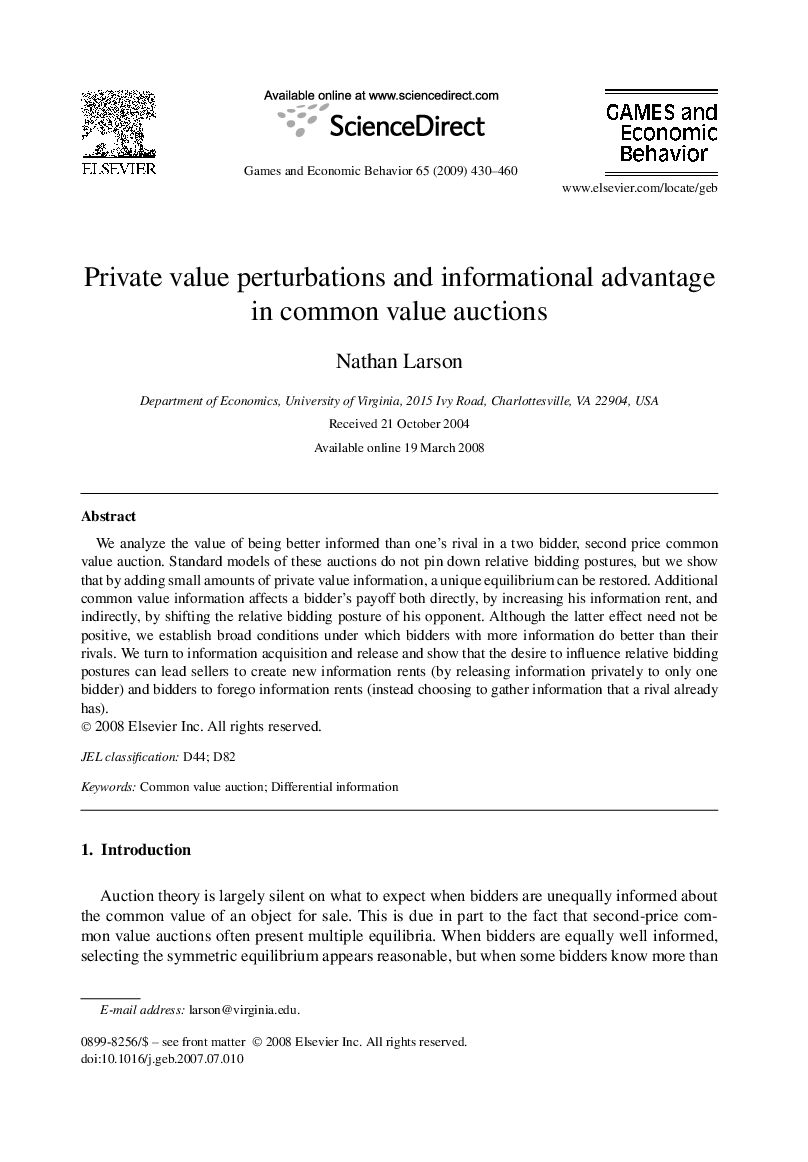| Article ID | Journal | Published Year | Pages | File Type |
|---|---|---|---|---|
| 5072864 | Games and Economic Behavior | 2009 | 31 Pages |
Abstract
We analyze the value of being better informed than one's rival in a two bidder, second price common value auction. Standard models of these auctions do not pin down relative bidding postures, but we show that by adding small amounts of private value information, a unique equilibrium can be restored. Additional common value information affects a bidder's payoff both directly, by increasing his information rent, and indirectly, by shifting the relative bidding posture of his opponent. Although the latter effect need not be positive, we establish broad conditions under which bidders with more information do better than their rivals. We turn to information acquisition and release and show that the desire to influence relative bidding postures can lead sellers to create new information rents (by releasing information privately to only one bidder) and bidders to forego information rents (instead choosing to gather information that a rival already has).
Keywords
Related Topics
Social Sciences and Humanities
Economics, Econometrics and Finance
Economics and Econometrics
Authors
Nathan Larson,
